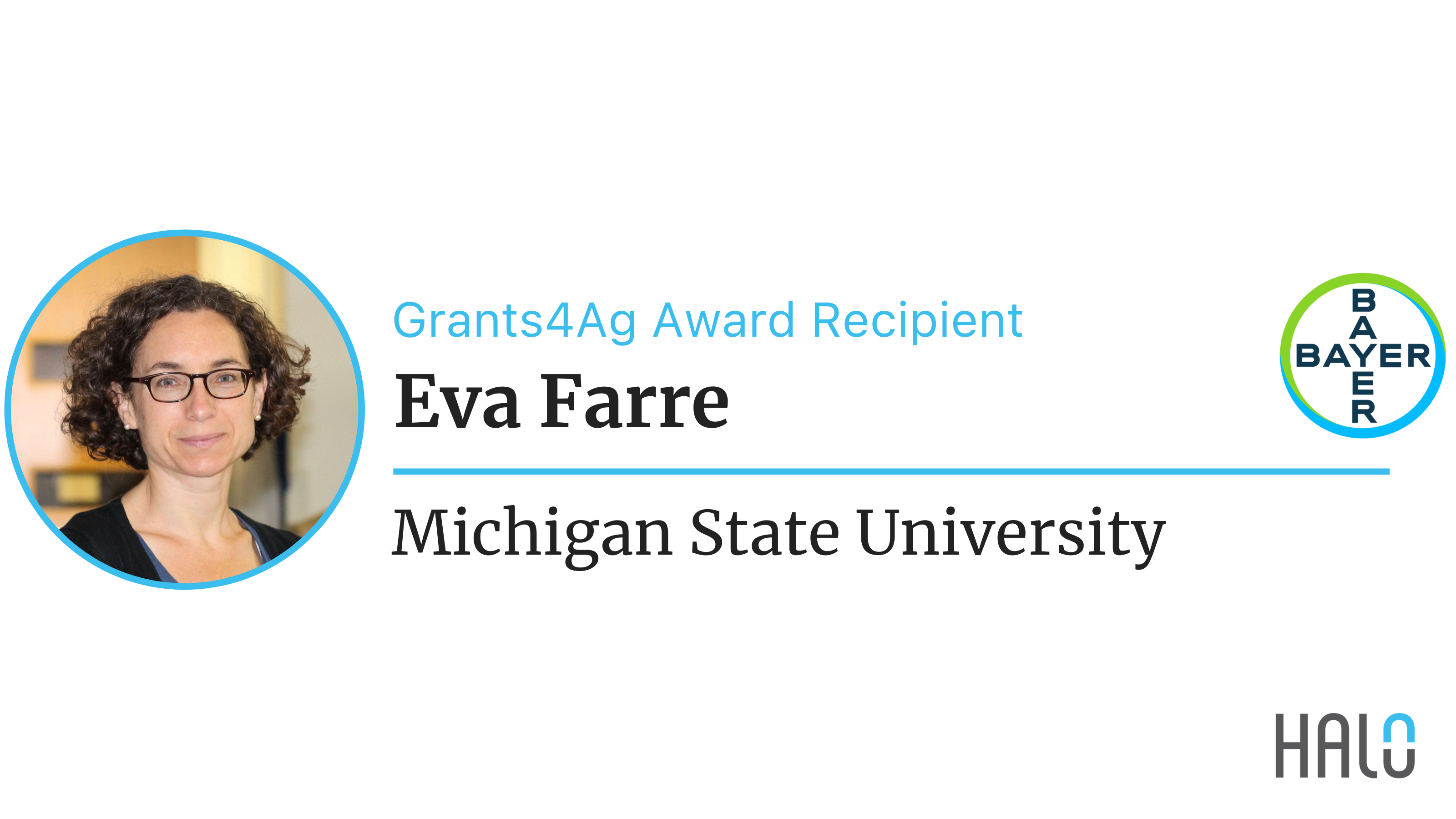Like many organisms, potato plants too have circadian clocks. Prof. Eva Farre is investigating the role of the circadian clock in potato and its role in adaptation to better understand how to optimize growth and development in different local environments. View Halo Profile >>
Tell us about your research.
We work on the circadian clock in potato, in particular its role in adaptation. We observed that different potato species have clocks with different periods and that a short circadian period appears to be associated with the domesticated potato. The current hypothesis is that different periods allow for better growth under different photoperiods.
We work on the circadian clock in potato, in particular its role in adaptation.
Can you explain that to a non-scientist?
The circadian clock is a mechanism by which organisms tell time. It allows them to regulate physiological processes at specific times of day and to the different daylengths that occur in different seasons. There are variations of the circadian clock, with some plants having a faster clock than others. We want to understand if that variation provides advantages to growth at different locations.
Why did you choose this area of research?
Circadian clocks are necessary for optimizing the growth and development of plants. But, we do not thoroughly understand why that is, in particular the role of the clock in adaptation to local environments and in the domestication of plants.
Climate change will put pressure on the breeding of crops that can grow and produce efficiently at different latitudes. Understanding the role of the circadian clock will enable us to identify potential gene variants that will help in this process.
How could your Grants4Ag project someday impact #healthforall #hungerfornone?
Climate change will put pressure on the breeding of crops that can grow and produce efficiently at different latitudes. Understanding the role of the circadian clock will enable us to identify potential gene variants that will help in this process.


